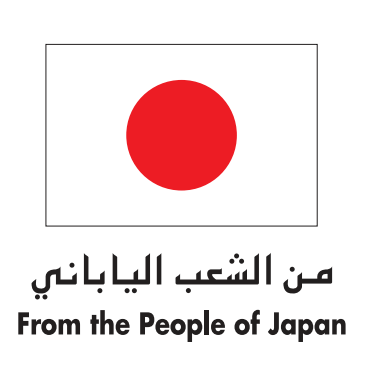 occupied Palestinian territory, 29th March 2018 - Amidst the major electricity challenges to Gaza’s health sector, WHO welcomes Japan’s partnership to provide solar panels to some of the most critical and lifesaving health departments across Gaza’s major public hospitals.
occupied Palestinian territory, 29th March 2018 - Amidst the major electricity challenges to Gaza’s health sector, WHO welcomes Japan’s partnership to provide solar panels to some of the most critical and lifesaving health departments across Gaza’s major public hospitals.
Japan’s recent contribution of US $ 500,000 over the next twelve months will help to alleviate suffering for some of the most critically ill patients. “This grant has enabled WHO to offer healthcare to over 22,000 patients in need of critical healthcare services, including patients in intensive care units (ICU’s), operational theatres, emergency departments, dialysis units and neonatal intensive care units”, said Dr Gerald Rockenschaub, WHO Representative in oPt.
“Patients in these departments face a life-threatening situation when fuel supplies for the back-generators start to deplete. With funding from Japan, WHO will be able to work towards supporting fuel-preserving measures”, Dr Rockenschaub added.
The health resources are continuing to decrease in the Gaza Strip and is now in urgent need of support in critical elements, including electricity, training health professionals, medical equipment and medicines.
Mr Takeshi Okubo, Ambassador for Palestinian Affairs and Representative of Japan to Palestine, said “I’m pleased to announce to you that the Government of Japan has decided to provide a new assistance of about 40 million US dollars to Palestine for the year 2018, including WHO. With this new assistance, the total value of Japanese assistance to the Palestinian people will reach 1.86 billion US dollars since 1993.”
WHO strives to improve the health of the most vulnerable people in the oPt, and in light of the deteriorating health situation in Gaza, WHO conducted an internal assessment of the situation and increased the emergency grading from grade 1 to grade 2 in line with the Emergency Response Framework (ERF), scaling up its emergency health support across the oPt. For WHO’s Health Emergencies Programme USD $12. 5 million is needed, out of which only 12% has been secured.
For more information:
Sara Halimah
Health Cluster Coordinator & Emergencies
WHO email: This email address is being protected from spambots. You need JavaScript enabled to view it.
WHO Office - occupied Palestinian territory
 occupied Palestinian territory, 29th March 2018 - Amidst the major electricity challenges to Gaza’s health sector, WHO welcomes Japan’s partnership to provide solar panels to some of the most critical and lifesaving health departments across Gaza’s major public hospitals.
occupied Palestinian territory, 29th March 2018 - Amidst the major electricity challenges to Gaza’s health sector, WHO welcomes Japan’s partnership to provide solar panels to some of the most critical and lifesaving health departments across Gaza’s major public hospitals.
Japan’s recent contribution of US $ 500,000 over the next twelve months will help to alleviate suffering for some of the most critically ill patients. “This grant has enabled WHO to offer healthcare to over 22,000 patients in need of critical healthcare services, including patients in intensive care units (ICU’s), operational theatres, emergency departments, dialysis units and neonatal intensive care units”, said Dr Gerald Rockenschaub, WHO Representative in oPt.
“Patients in these departments face a life-threatening situation when fuel supplies for the back-generators start to deplete. With funding from Japan, WHO will be able to work towards supporting fuel-preserving measures”, Dr Rockenschaub added.
The health resources are continuing to decrease in the Gaza Strip and is now in urgent need of support in critical elements, including electricity, training health professionals, medical equipment and medicines.
Mr Takeshi Okubo, Ambassador for Palestinian Affairs and Representative of Japan to Palestine, said “I’m pleased to announce to you that the Government of Japan has decided to provide a new assistance of about 40 million US dollars to Palestine for the year 2018, including WHO. With this new assistance, the total value of Japanese assistance to the Palestinian people will reach 1.86 billion US dollars since 1993.”
WHO strives to improve the health of the most vulnerable people in the oPt, and in light of the deteriorating health situation in Gaza, WHO conducted an internal assessment of the situation and increased the emergency grading from grade 1 to grade 2 in line with the Emergency Response Framework (ERF), scaling up its emergency health support across the oPt. For WHO’s Health Emergencies Programme USD $12. 5 million is needed, out of which only 12% has been secured.
For more information:
Sara Halimah
Health Cluster Coordinator & Emergencies
WHO email: This email address is being protected from spambots. You need JavaScript enabled to view it.
WHO Office - occupied Palestinian territory
 occupied Palestinian territory, 29th March 2018 - Amidst the major electricity challenges to Gaza’s health sector, WHO welcomes Japan’s partnership to provide solar panels to some of the most critical and lifesaving health departments across Gaza’s major public hospitals.
occupied Palestinian territory, 29th March 2018 - Amidst the major electricity challenges to Gaza’s health sector, WHO welcomes Japan’s partnership to provide solar panels to some of the most critical and lifesaving health departments across Gaza’s major public hospitals.








